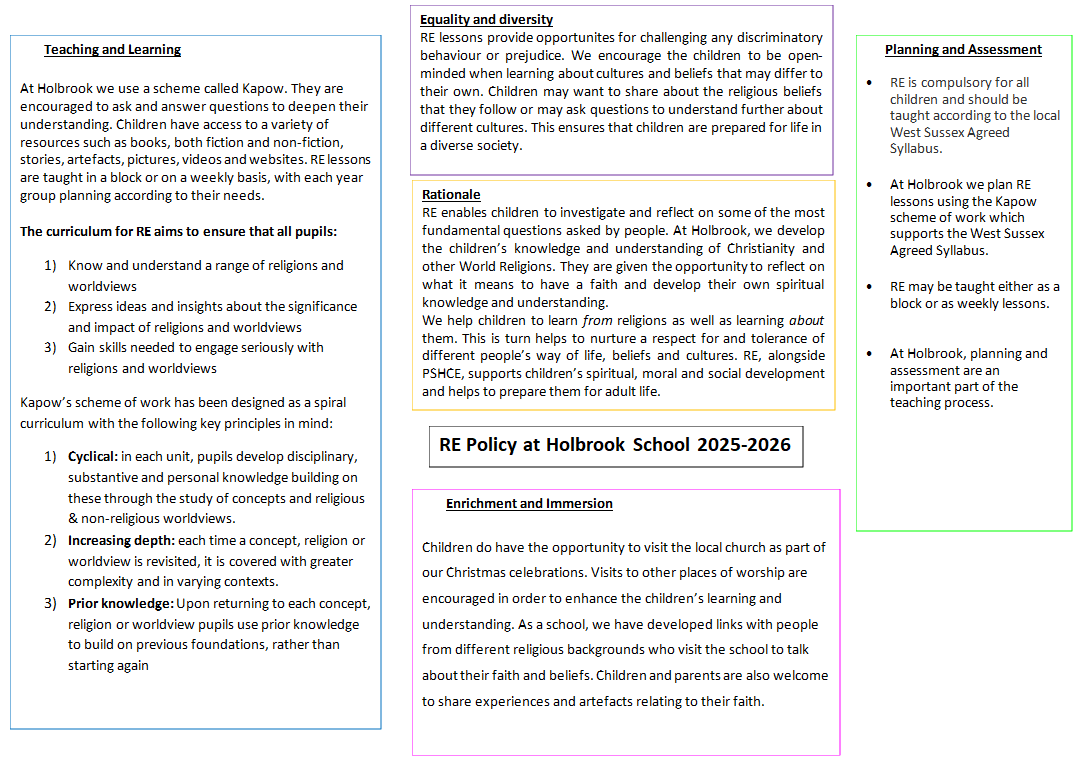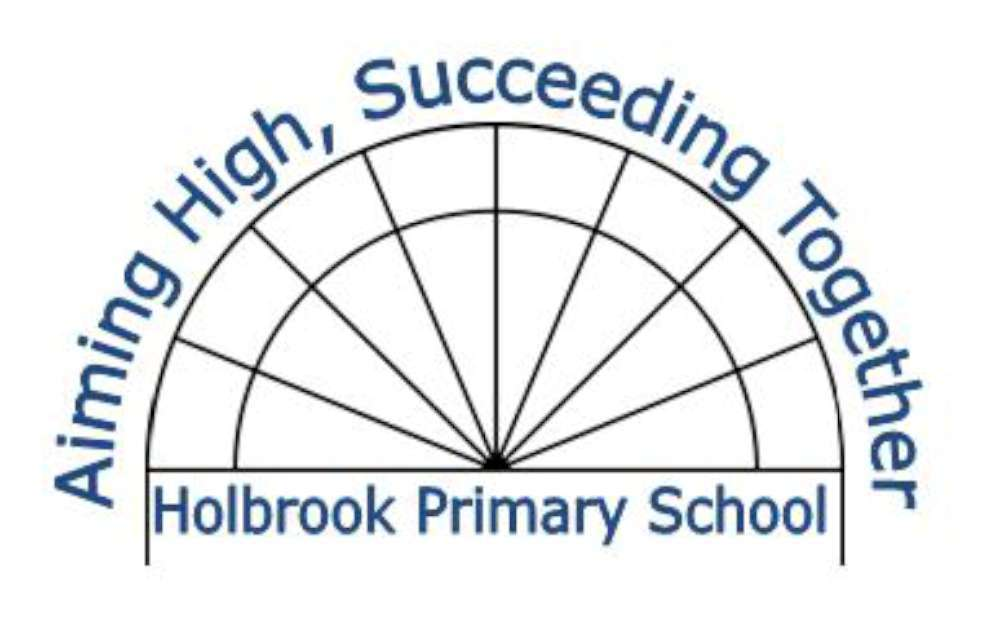RE
Intent
Religious Education (RE) enables children to investigate and reflect on some of the most fundamental questions asked by people. At Holbrook, we develop the children’s knowledge and understanding of Christianity and other World Religions.
Establishing a safe, open and positive learning environment based on trusting relationships between all members of the class, is vital for RE lessons at Holbrook. We help children to learn from religions as well as learning about them, helping to nurture a respect for and tolerance of different people’s way of life.
Implementation
We use a scheme called ‘Discovery RE’ which provides enquiry and discussion based learning based on the West Sussex Agreed Syllabus.
Each year group is allocated aspects of specific religions.
- EYFS – Christianity and Hinduism through celebrations, stories from different religions and special places.
- KS1 – Christianity, Judaism and Islam concentrating on celebrations, stories, special places and key aspects of those religions such as belonging.
- KS2 – Christianity, Hinduism, Islam and Buddhism concentrating on exploring key concepts to a deeper level, such as salvation, reincarnation and commitment.
The children learn through lively discussion, investigation and drama with opportunities to work independently and collaboratively. They are actively encouraged to ask and answer questions to deepen their understanding.
As well as specific learning in their year group, children also have the opportunity to take part in whole school RE activities. An example of this was Interfaith Week, where children were given the opportunity to complete a piece of artwork to reflect the religion they were currently learning about.
Discovery RE is written as provision for all children, promoting inclusivity within the classroom. Teachers can tailor the Discovery RE lessons to meet the needs of the children in their classes.
Impact
By following Discovery RE at Holbrook we intend that RE will:-
- adopt an enquiry based approach beginning with the children’s own life experience before moving into learning about and from religion.
- provoke challenging questions about beliefs, issues of right and wrong, commitment and belonging.
- encourage pupils to explore their own beliefs (religious or non-religious) in light of what they learn.
- enable pupils to build their sense of identity and belonging, which helps them flourish within their communities and as part of a diverse society.
- teach pupils to develop respect for others, including people with different faiths and beliefs.

